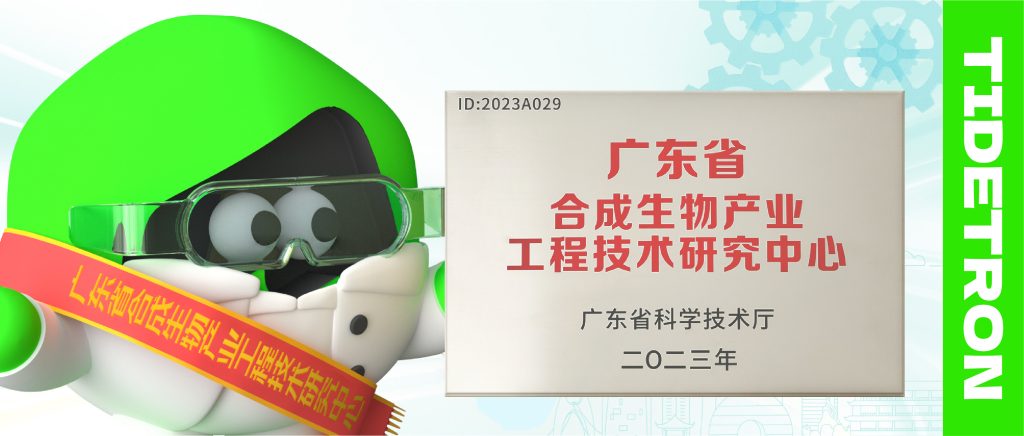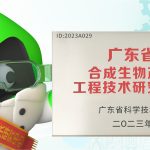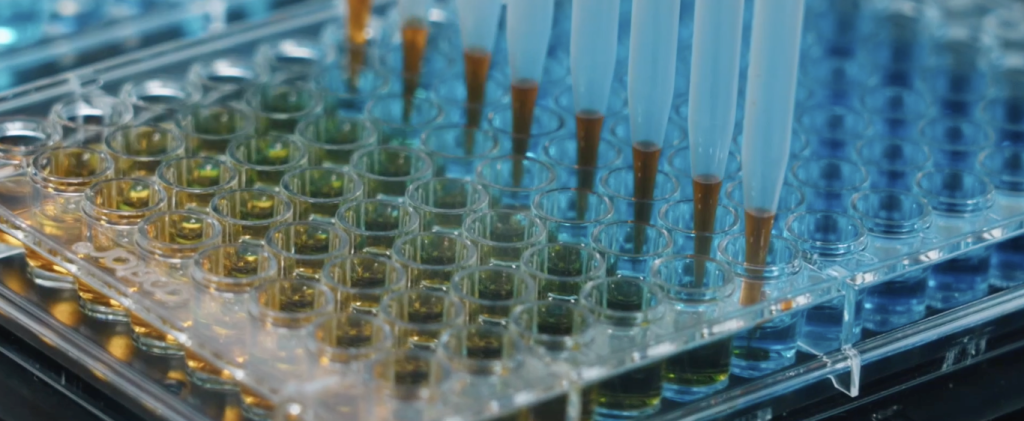
"In college, I realized I could let go of impossible things only after I truly understood 'Quantum Mechanics.' Quantum mechanics enlightened me," said Zhiqian Zhang, inside his Tidetron Bioworks Co., Ltd. office, as he shared his story with reporters.
This year marks the final year of Zhiqian Zhang's eight-year combined bachelor's and doctoral program at Zhongshan School of Medicine, Sun Yat-sen University. Since starting college, he has accomplished many things others believed were beyond his reach. Instead of focusing solely on studying the fundamentals, he entered the laboratory in the second semester of his first year to embark on research in life sciences. Although he could have pursued a direct path to a Ph.D., he successfully applied for a visit to Yale University, which had no direct affiliation with Sun Yat-sen University. Rather than solely dedicating himself to academics upon returning from studying abroad, he chose entrepreneurship two years ago.
Today, Zhiqian Zhang's company has raised over 100 million dollars in funding, making it one of China's earliest synthetic biology manufacturing companies. Just as the vibrant energy of youth is evident in every aspect of their lives, the burgeoning field of synthetic biology is also leading the transformation of the production sector, injecting a continuous stream of vitality into the high-quality development of Guangzhou, the "Millennium Commercial Capital."
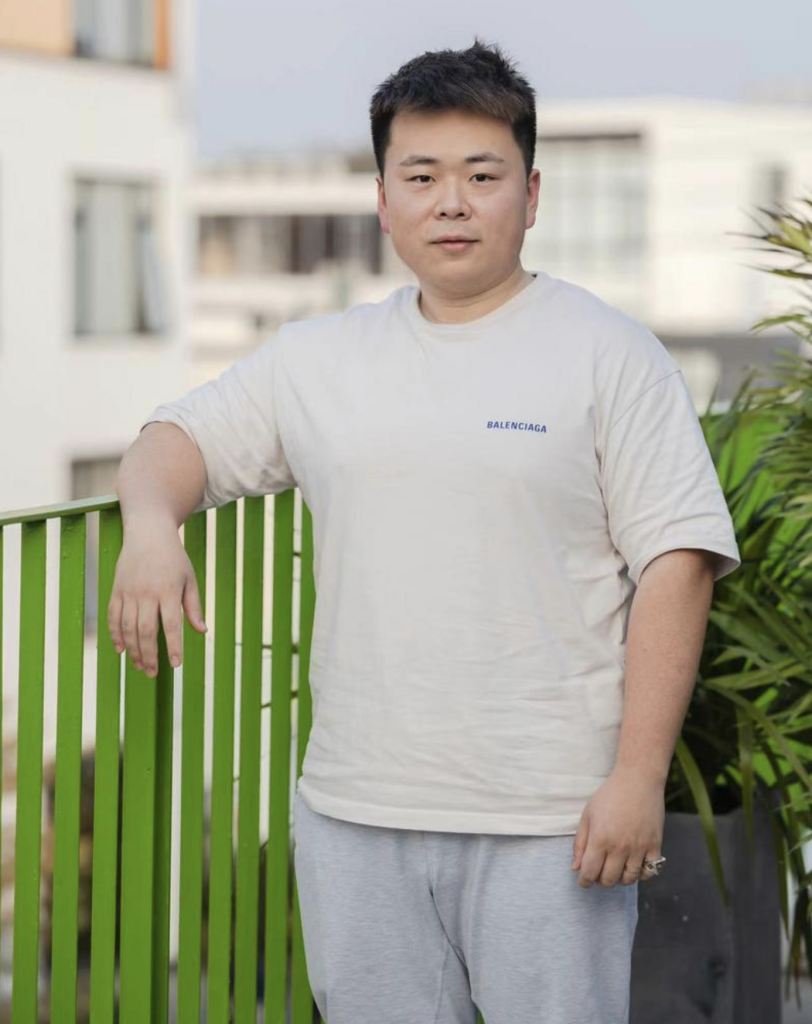
Sometimes, the entire company reverberates with Zhiqian Zhang's hearty laughter. A carefree and optimistic CEO, he has had a smooth journey through the first 27 years of his life.
From Adhering to Rules to Exploring the Unknown
Zhiqian Zhang was born in a small city in Shandong Province in 1995. His parents were busy with their business, so he was sent to a boarding school at a young age, fostering his independent character. Before entering college, Zhiqian Zhang was obedient and diligent, like many Chinese students. "My high school was very focused on the college entrance examination. I had no access to mobile phones or computers and had limited exposure to external information. I didn't think about anything else but reading and studying then. Everything was done according to rules and plans, including choosing to study medicine to secure a stable career."
Zhiqian Zhang studied science and deeply admired Newton and his laws of classical physics. When he first read the thin book "Quantum Mechanics" in high school, he was immediately captivated by its content. "I read it twice in high school but couldn't understand many formulas because I lacked foundational knowledge. I could only vaguely grasp what it was about but didn't know the subject's significance or what it could change. When I entered college, Sun Yat-sen University invited physics professors to lecture as part of the general education curriculum. I consulted these professors and read 'Quantum Mechanics twice again before gradually understanding the book."
Understanding "Quantum Mechanics" is like scaling a mountain, bringing joy, and overturning Zhiqian Zhang's inherent way of thinking. "Newton and his laws of classical physics were overturned in the quantum world. After reading 'Quantum Mechanics,' had a tremendous impact on my worldview. It opened up my understanding of the microscopic and macroscopic worlds. Although it is a book of knowledge, it told me that I should dare to try new paths, make bold assumptions, and seek ways to verify these hypotheses."
While the subjects of scientific study may vary, the research approach often shares similarities. Since then, Zhiqian Zhang has ceased to be a conformist student, continuously proposing various hypotheses related to medicine and life sciences. He applied to work in laboratories, discussing his research ideas and methods with professors and fearlessly exploring the unknown. By conducting research projects as early as his first year, Zhiqian Zhang blazed a trail at Zhongshan School of Medicine.
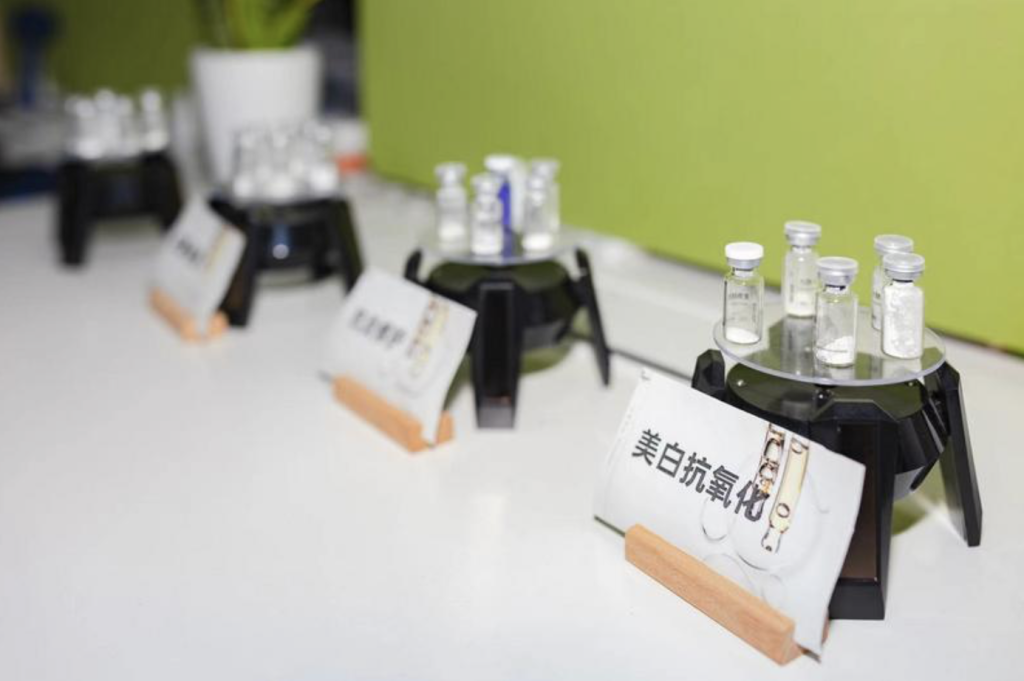
Initially, Zhiqian Zhang's research was primarily driven by interest and focused on medical applications such as ophthalmology, cancer research, and cellular mechanisms. Later, his interest shifted toward life sciences, and he truly encountered synthetic biology during his junior year. "When I came across this concept, I was very excited. It was something that had not appeared in my previous research. At that time, synthetic biology was not commonly used in China. The prevailing expressions were engineering biology or microbiology research. Synthetic biology differs significantly from them; its core lies in utilizing the language, logic, and meaning of genes, synthesizing what people desire. In this process, we must also respect many principles of life sciences."
Today, there are numerous research achievements in synthetic biology both domestically and internationally. For example, last year, Chinese scientists successfully synthesized starch from carbon dioxide, sparking dreams of a future where people could survive without resources. However, these achievements still need to be made for industrialization. When Zhiqian Zhang initially conducted synthetic biology research, he focused on achieving large-scale production through synthetic biology technology. "I conducted extensive research on the scalable mechanisms of synthetic biology. I verified different combinations of genes and used large-scale computational methods to screen them. My vision was establishing a strain library and creating a complete reaction control system to help us solve the production challenges."
However, with limited experience as a third-year student, Zhiqian Zhang was eager to broaden his horizons.
Broadening horizons through conversations with masters
Zhiqian Zhang chose to go abroad. He proudly told reporters, "I arranged the visit to Yale alone. At that time, there was no official collaboration between my university and Yale University. I took the initiative to contact professors at Yale, proposed a research project, and then went there for a visit. No student from my university had ever done such a visit before."
"After going abroad, I realized that the research achievements in synthetic biology abroad were even more extensive than what I had seen in papers. Many companies in the United States were working on industrializing synthetic biology. They also believed synthetic biology was a cutting-edge discipline with numerous methods, but they had not yet achieved large-scale production. I told my advisor at Yale that I wanted to solve this problem. Many substances could already be synthesized using synthetic biology methods, but they still needed more in the market. We would eventually gain a disruptive advantage by using synthetic biology for production."
During his time in the United States, Zhiqian Zhang had the opportunity to meet some of the brightest minds in the field. "I attended Professor Zhang Feng's lecture; he is the discoverer of the gene editing technology CRISPR-Cas9. I also met structural biologist Ning Yan and had conversations with her. Additionally, I met many Jewish scientists who were incredibly intelligent. Whether it was their mental agility, problem-solving approach, or way of making hypotheses, they surpassed ordinary scientists significantly. For me, the ability to make scientific hypotheses is the standard by which I distinguish between ordinary and exceptional scientists."
"In synthetic biology, I also began to be influenced by their thinking. For instance, synthesis is essentially an energy distribution process. Meaningless results can be avoided if it does not violate the overarching logic of energy distribution. Next, I need to conceive of problems others cannot think of: Why is this energy distribution reasonable? Can we achieve better large-scale production if we rationalize energy distribution? Constantly proposing rational hypotheses and conducting verifications has been my ongoing thinking process in synthetic biology," Zhiqian Zhang said.
Encountering the "horse spotter" after being rejected more than 30 times
After returning to China, Zhiqian Zhang used his parents' funds to conduct experiments and eventually established a strain library. The strain library utilizes synthetic biology technology and related materials to produce raw materials for various industries, including industry, medicine, cosmetics, and food. The production cost is lower than traditional chemical synthesis, which is more energy-efficient and environmentally friendly. "We can use synthetic biology methods to produce industrial intermediates like butanediol and succinic acid. These substances originally needed to be extracted from petroleum, but our production method can reduce fossil fuel consumption."
Zhiqian Zhang told reporters that he confidently embarked on entrepreneurship after establishing the strain library. However, a significant gap between business and scientific research must still be bridged. By then, the money his parents had provided for experiments had been exhausted. To realize his dreams, he had to gain the favor of capital. "At that time, I met with thirty to forty investment firms in three to four months. Synthetic biology was still not widely known, and people didn't know what it was. When I met with investors, their first question was, 'What is synthetic biology?' The second question was, 'How much money can you make with this? Can it be profitable?' It was only then that I realized the existence of investment firms. Initially, I needed help to answer their questions. I was rejected by thirty to forty of them."
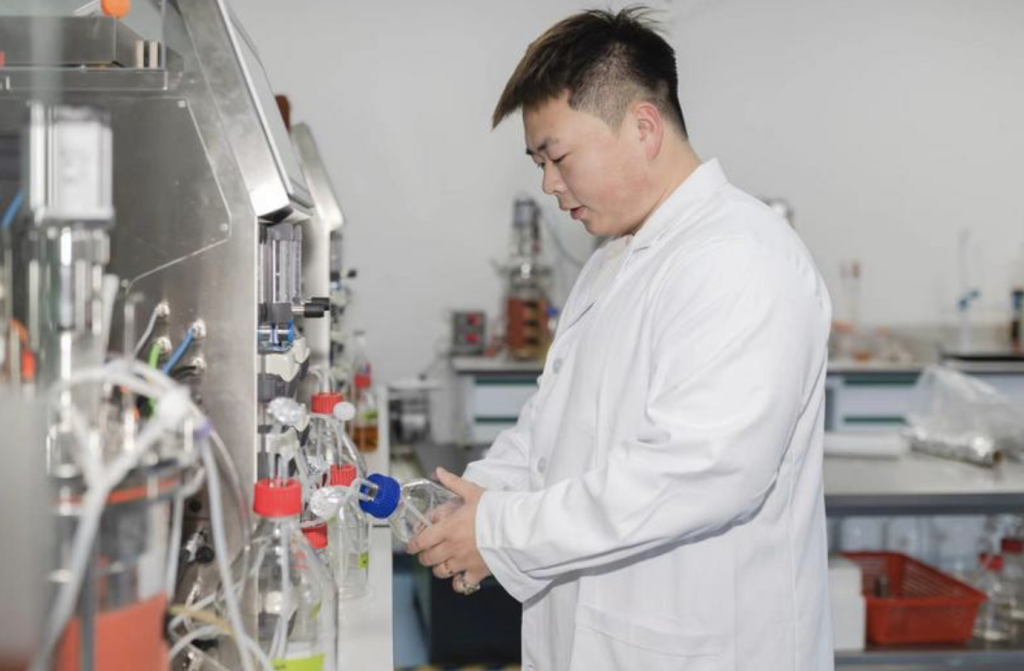
It may be the biggest challenge Zhang Zhiqian encountered on his entrepreneurial journey. He said that many angel investors he met at the time politely expressed that his idea was good and they could talk again in a couple of days. However, "a couple of days" usually meant no further progress, and he was continuously rejected. But these rejections did not make him give up; instead, they reinforced his belief in the value of synthetic biology. He finally found an investment firm whose founder came from the internet industry. Using a highly computational mindset and language, Zhang Zhiqian explained to him what synthetic biology is and what it can achieve. Finally, the founder understood that synthetic biology is like programming for biology, which intrigued him. As a result, he was willing to invest in their company.
With the angel investment, Zhang Zhiqian embarked on his entrepreneurial journey. Due to the good results, output, and commercialization, as well as positive customer feedback, the company rapidly grew in size. "From the first round of angel investment to the second round of financing, only two to three months passed. Subsequently, a series of investments followed. Initially, when I was seeking angel investment, I was doing it alone. I also communicated with my classmates, hoping to form a team. When we secured the investment, there were only three of us, including my junior schoolmate from Zhongda and one of my high school classmates. But now, our team in Guangzhou has 130 people, and the factory in Shandong has 70 to 80 people. Altogether, we have more than 200 people," Zhang Zhiqian said.
Prominent academic leaders become "foreign aids."
The Academician Song Erwei of the Chinese Academy of Sciences and Academician Chen Jian of the Chinese Academy of Engineering. They serve as research consultants for the company. Zhang Zhiqian told reporters that gaining attention from the academic community was due to two factors: being an early player in synthetic biology and arousing curiosity among many scholars about his entrepreneurial endeavors.
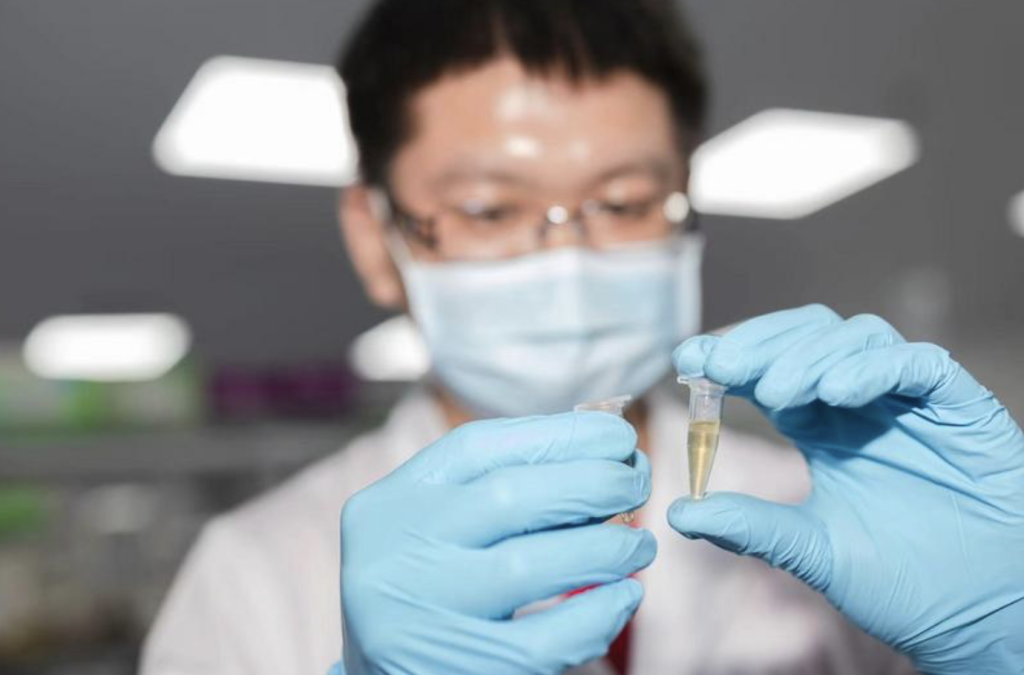
"Many professors were curious about how well I was doing and whether it connected to their research. So, we would often exchange ideas. After talking with one professor, they would introduce me to even more impressive professors. I gradually met Academician Chen Jian, Academician Song Erwei, and others through their introductions," Zhang Zhiqian said. "At first, I was worried because the company was involved in the production of cosmetic ingredients and food ingredients, which, although using cutting-edge technology, were considered low-end by their standards. However, after talking with them, I realized these professors had a broad perspective. They believed that it was excellent as long as it had a practical impact on the industry and the potential for significant growth. They admired young people who boldly applied synthetic biology technology to seemingly less glamorous fields. For example, Academician Chen Jian would directly say that he was impressed by the aspirations of young people, and Academician Song Erwei shared the same sentiment."
Academician Song Erwei is also the Zhongshan School of Medicine president at Sun Yat-sen University. When talking with students, Zhang Zhiqian admitted that he was initially more reserved, but as the conversation progressed, everyone became more relaxed. "I have many entrepreneurial stories to share, and what I do may be something they have never considered. Academician Song is very young, so our conversation was very calm, and it felt like the dean was receiving a student."
For Zhang Zhiqian, entrepreneurship and academia are contradictory and mutually beneficial. "Entrepreneurship and studying are entirely different. Research involves finding topics, conducting experiments, solving problems, and validating hypotheses. But running a business is a completely different matter. It was relatively manageable when the company was small, but as it gradually grew, the scope of responsibility expanded, requiring much effort. Our products are currently divided into four main areas, each with a completely different business logic. Managing the company is challenging, and I must understand each area," he said.
"The advantage of having a company is that we now have a laboratory, and we can directly utilize the company's laboratory for scientific research. With the help of the company's laboratory, we have already published many articles, so I don't feel much pressure regarding scientific research. It's a kind of 'dimensional reduction attack.' While others doing a Ph.D. may be conducting experiments alone, if I want to conduct experiments, a group of people in the company can help," Zhang Zhiqian told reporters.
Guangzhou's tailored assistance to businesses
Zhang Zhiqian's company can produce more than 50 raw materials using synthetic biology technology and a proprietary strain library. "Synthetic biology is an environmentally friendly production method. Compared to traditional chemical industry methods, its emissions have been reduced to about 1% of the original amount. Synthetic biology brings about a revolution in the production methods of raw materials. The prices of peptide-based cosmetic ingredients have decreased by 30% to 40% compared to when we first started. This significant decrease is because we have been able to bring the raw materials to the market at lower prices," he explained.

Zhang Zhiqian's company also applies many of the produced raw materials in food processing and industrial production. "For example, some industrial formulations used to be dominated by foreign companies worldwide. Now, we use synthetic biology methods to produce these products and gradually replace them in the market. Our key additives are used in people's daily lives, and without them, certain products cannot be made."
Synthetic biology also plays a role in traditional fields. Zhang Zhiqian elaborated, "We are transforming traditional fermentation industries, such as soy sauce and monosodium glutamate production. These industries used to be high-energy-consuming and highly polluting, requiring massive production workshops and having very low-profit margins. Entrepreneurs relied on their grasp of the supply chain to make money. We utilize our strains to help soy sauce manufacturers improve production efficiency. It not only reduces costs but also reduces the required workspace. Previously, they might need a 1000-square-meter factory, but now they only need 200 square meters to produce the same quality soy sauce."
Zhang Zhiqian's company generates revenue relatively evenly across four areas: cosmetic ingredients, agriculture, upstream reagent development for medical testing, and the food industry.
"When I started a business in Guangzhou, it was because I studied here without considering much else. Later on, I discovered that Guangzhou indeed has its advantages. It is a gathering place for manufacturing industries, making it easier to engage with downstream customers. For example, Guangzhou is a hub for the cosmetics industry, with over half of the country's cosmetics production occurring here. This natural proximity to customers greatly facilitates our order fulfillment. Guangzhou was also one of the earliest cities to open up in China, and its acceptance and tolerance for new technologies are relatively high. Although other cities may also have advantages, Guangzhou provides us with tailored assistance as an enterprise. The business environment here is truly excellent," Zhang Zhiqian said.
"Since I started my business, I have told my entrepreneurial partners that we are not in this to earn a lot of money but to make something great. Breaking limitations, making bold assumptions, careful argumentation, and courageous perseverance are the keys to my success in studying and entrepreneurship," Zhang Zhiqian concluded.
Article source:https://huacheng.gz-cmc.com/pages/2023/02/16/673c3f7871c44896b489170d83cda5b3.html




